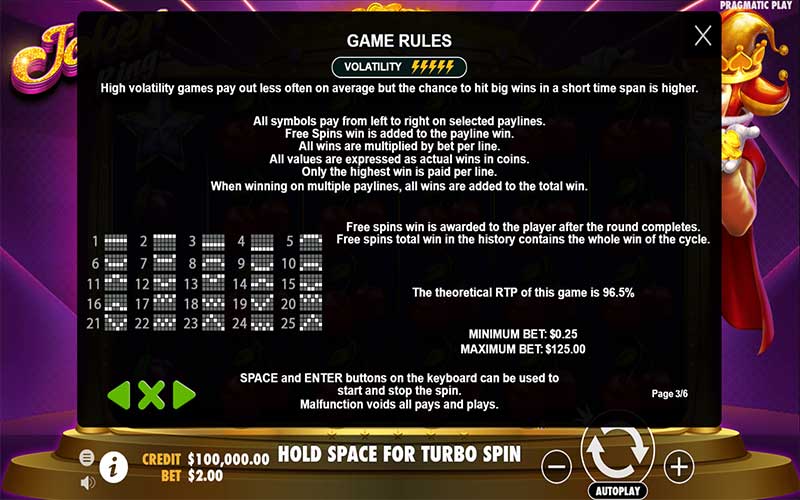Home » Casino news » Why Do You Need to Pay Attention to the Paytable in Online Slots?
Why Do You Need to Pay Attention to the Paytable in Online Slots?
In an era of countless slot reviews, players can often know everything about a game before launching it. However, an online slot’s paytable is an excellent source of information most of the time. It offers a quick way for players to check all kinds of information relevant to the release they are playing. In this article, we will list several reasons why you should always check the paytable.
Paylines
One of the best things about the online slot’s paytable is the fact they show the exact number of paylines and their layout. This can be incredibly useful if a slot has an unorthodox layout of reels. Of course, this does not apply if the game is using something like cluster pays or Megaways. Even in such cases, the paytable will let you know not to expect a traditional payline setup.
Symbol Payouts
The primary use of the paytable is to show how much each icon on the board can grant. Nowadays, developers will display adjustable values. As you change your wager, how much you win per spin changes in the paytable. Older titles will usually show fixed values displayed in coins. You can determine the most valuable icon by dividing the prize with your current coin value.
Special Features
Releases are getting increasingly complicated nowadays. Developers are constantly introducing new bonuses to keep players interested. As such, even plain special features like free spins often come with something attached. Sometimes, it is as simple as a multiplier. At other times, you get titles like NetEnt’s Jumanji with nine special features!
Either way, paytables offer a fantastic way of keeping up with how those bonuses work. They will often explain in detail how the special features function and what you can expect from them. The exact details vary between developers, however. If you find the paytable’s description too vague, you can always look up a review for further clarification.
Special Symbols
On top of describing bonuses, the paytable will also explain the function of special icons. Does a Wild come with a multiplier? Does it expand under specific circumstances? Can regular symbols turn into special icons as part of a bonus or a randomly activated feature? The answers to all of these questions can be found in the paytable.
Progressive Jackpot Wins
Progressive jackpot slots often grant their best prizes randomly. However, that is not always the case. Some titles will tie progressive jackpots to existing special features, or introduce certain conditions that must be met. Usually, those conditions relate to betting a certain amount to qualify for the jackpot. Such a mechanic is usually attached to older releases. Either way, you can find out if it exists in the paytable!
Just in Case…
Speaking of progressive jackpots, the online slot’s paytable also provides information on extremely unlikely cases. What happens if two players win the progressive jackpot simultaneously? The paytable has information resolving that. What about if your game freezes up? If you lose a connection in the midst of a bonus? Software providers have to have answers for these questions, and the paytable is where you find them.
RTP information
Most releases will list their RTP information in the paytable. Keep in mind that not all software providers make this information available. Instead, the information is usually available out of the game itself, such as the software provider’s website. At Indian Casino Club, we allow our members to filter what RTP ranges they find acceptable. In doing so, we let you skip the search.
Volatility Hint
It is not very often we see developers add the slot’s volatility in the paytable. The only software provider we know that does it consistently is Pragmatic Play. However, even if this information is not spelled out, the paytable still gives you a way to check.

Pragmatic Play is among the providers that constantly publish info on their games’ volatility.
If the highest payout is not very lucrative, there is a good chance you are playing a low variance game. Meanwhile, the bigger the jackpot, the better your possible top prize is. However, you should not accept this blindly. It is possible for a game to have small payouts, but to be able to increase it through special features. You need to consider these things when checking the volatility through the paytable.
